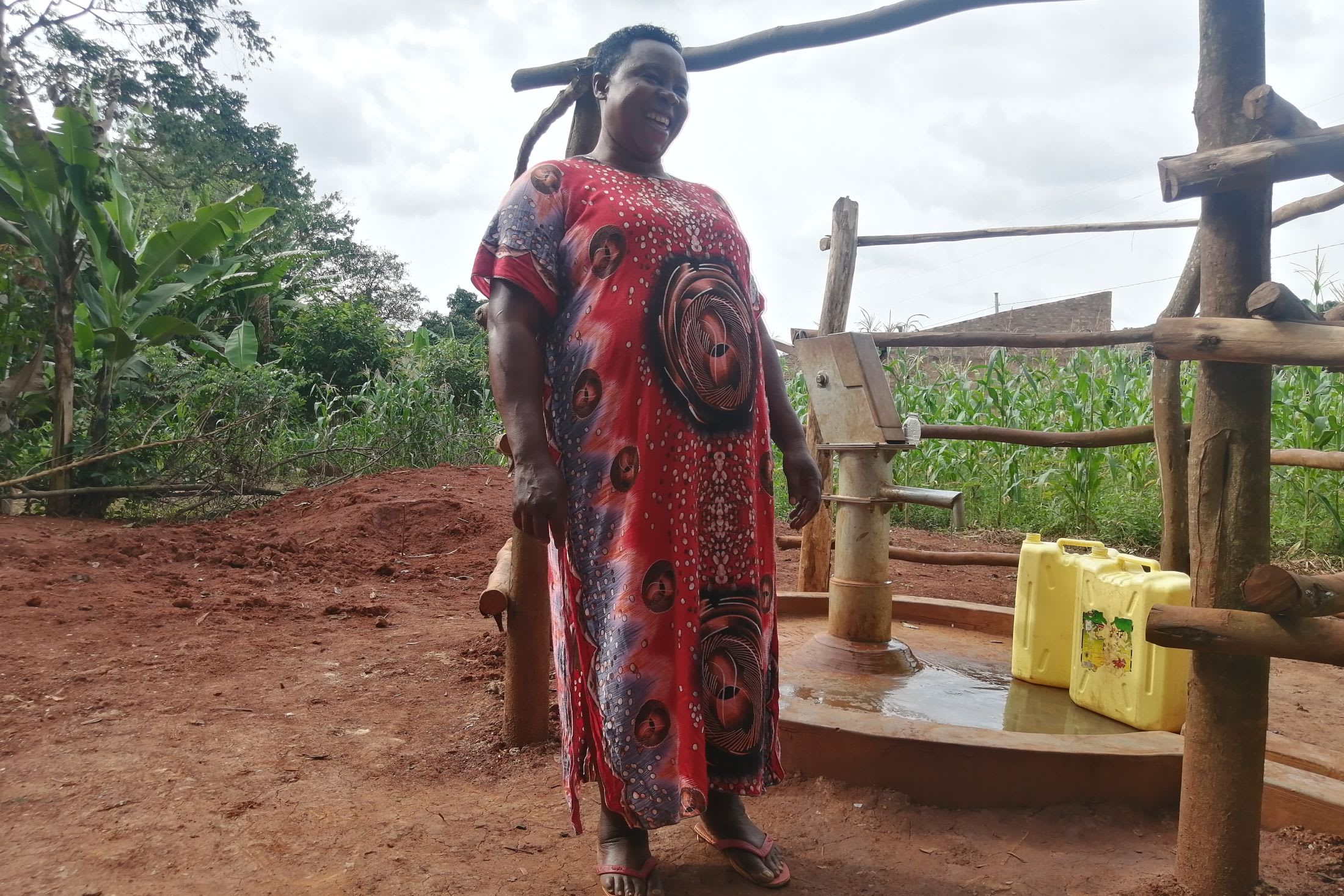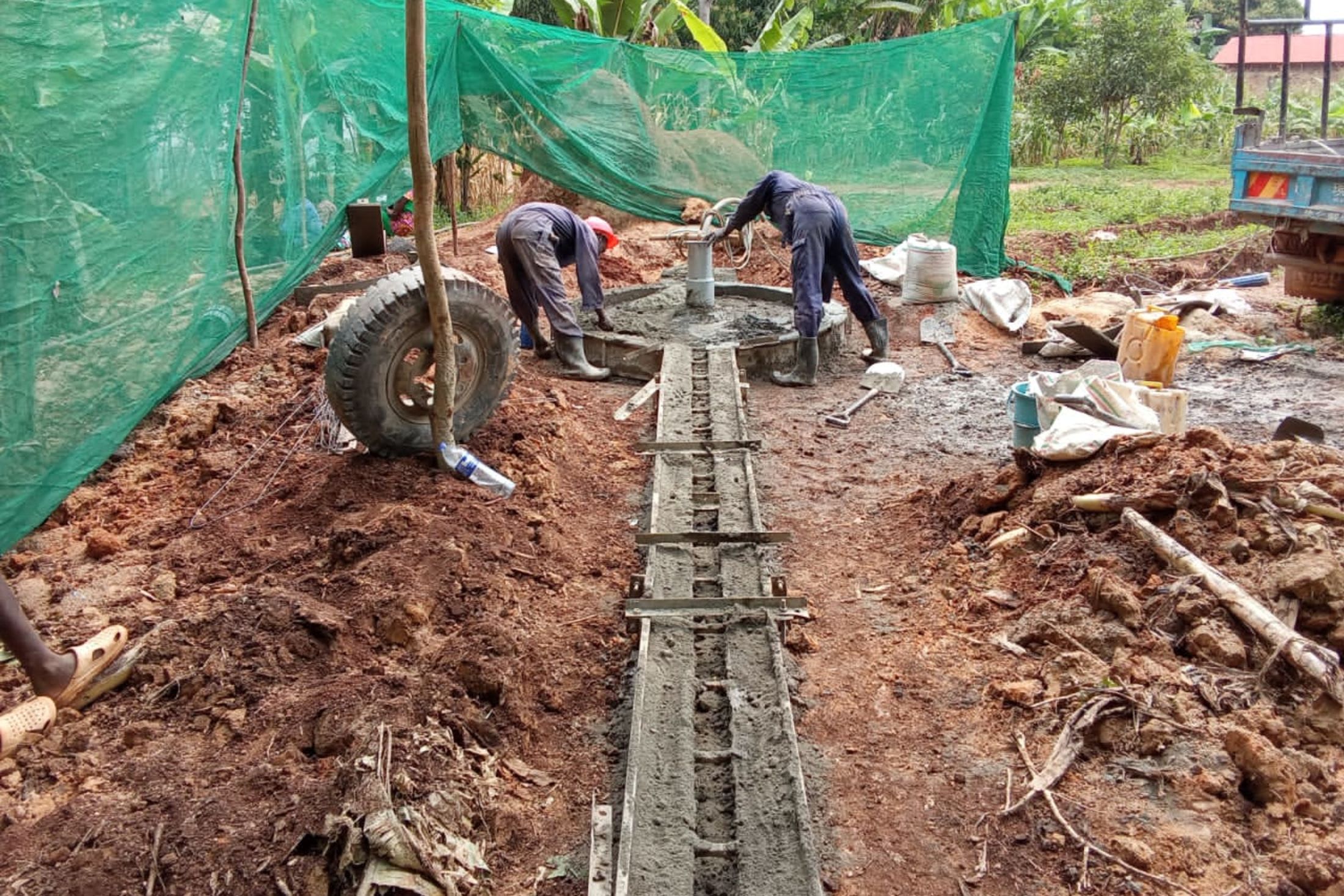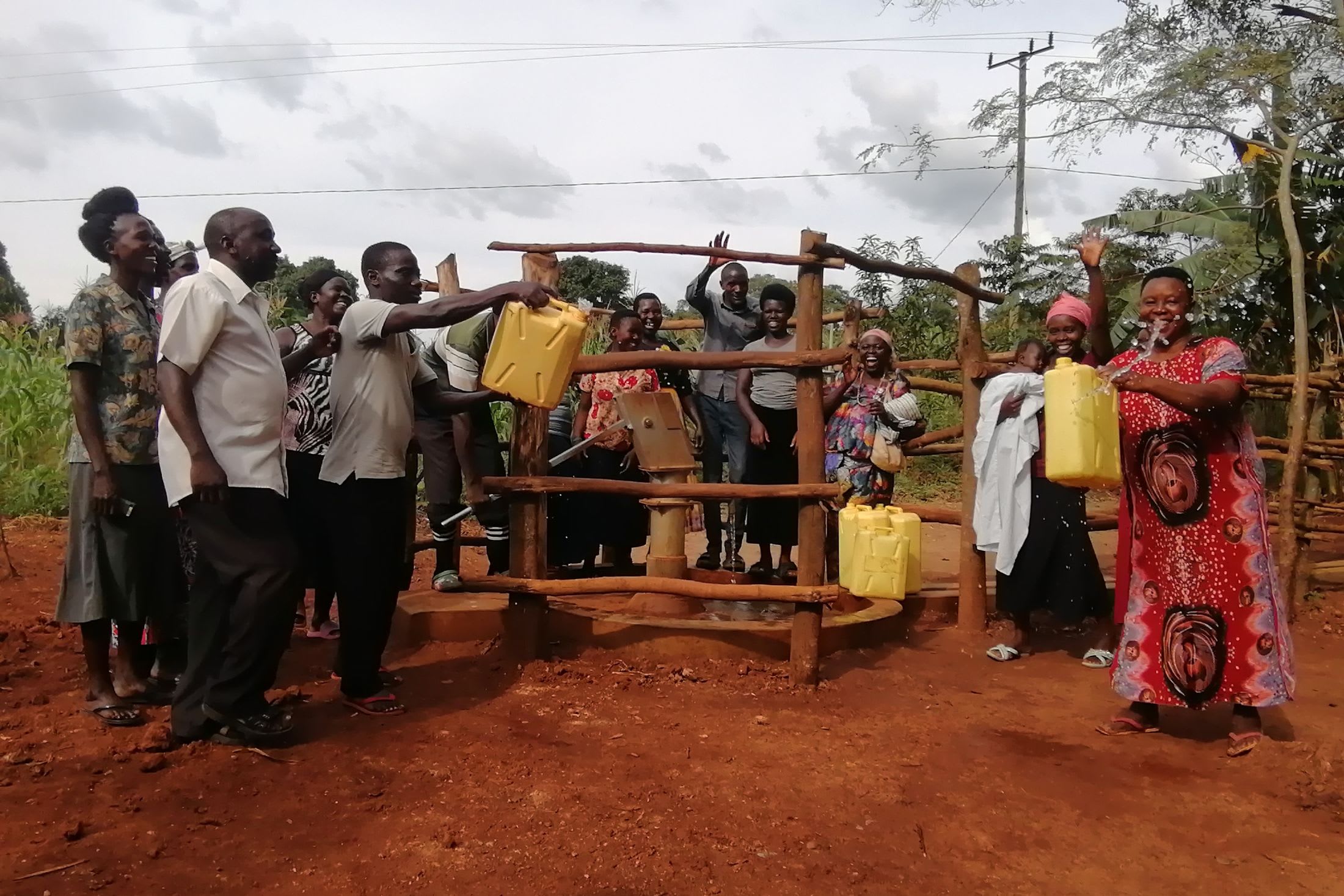The 250 people of the Byebega Community struggle to access sufficient water. People spend much of their day walking to faraway borehole wells in surrounding communities and waiting in long queues to collect water, delaying their daily tasks.
"The water crisis affects their other domestic activities because these can't be achieved as planned. You go to the water point thinking that you will come back early but find long lines. It affects food production because less time is dedicated to garden work as people spend a lot of time looking for water," said field officer Bena Nakabirir.

"I always fetch water when [I] come back from school in the evening. Whenever I go to the water point, I find long queues because, at that time, people are always back from their gardens and kids are back from school. Most of the time, I go back home from the water point late, hence affecting my other activities like reading books [and] washing [my] school uniforms. This generally affects my hygiene due to lack of enough time to wash uniforms and bathing," said 13-year-old Innocent M. (seen above).
Since the wait times are so long, some people forego the safer water for more convenient, contaminated sources closer to home. It is a risky choice that leaves people suffering from unnecessary water-related illnesses.
Those who are unable to collect water on their own are especially vulnerable. They must pay someone to collect water for them, which is often a cost they can not afford without sacrificing other significant needs.

"I face challenges of long distances because the borehole in the center is far. All my children are grown-ups, and they left home. I have young grandchildren between three and four years old, and these can't support in anything, so I buy water from hawkers. I buy three jerricans a day, and each jerrican goes for 500 Ugandan Shillings (0.13 cents). I suffer a lot as there are days when money is not there, and [we] end up sleeping without bathing due to the water scarcity. Spending money on buying water also affects my savings and stopped my piggery project due to water scarcity," said 59-year-old farmer Christine Birungi, seen above carrying water.
Installing a well in Byebaga will enable people to collect safe water efficiently and still have time and energy to perform other daily tasks that will improve their lives. With easily accessible water, everyone will have the opportunity to collect the water they need without having to spend their precious savings buying water. Children can go to school in clean uniforms, enhancing their self-esteem and creating the opportunity to dream of a brighter future.
The Proposed Solution, Determined Together...
At The Water Project, everyone has a part in conversations and solutions. We operate in transparency, believing it benefits everyone. We expect reliability from one another as well as our water solutions. Everyone involved makes this possible through hard work and dedication.
In a joint discovery process, community members determine their most advantageous water solution alongside our technical experts. Read more specifics about this solution on the What We're Building tab of this project page. Then, community members lend their support by collecting needed construction materials (sometimes for months ahead of time!), providing labor alongside our artisans, sheltering and feeding the builders, and supplying additional resources.
Water Access for Everyone
This water project is one piece in a large puzzle. In Kenya, Sierra Leone, and Uganda, we're working toward complete coverage of reliable, maintained water sources that guarantee public access now and in the future within a 30-minute round trip for each community, household, school, and health center. One day, we hope to report that this has been achieved!
Training on Health, Hygiene & More
With the community's input, we've identified topics where training will increase positive health outcomes at personal, household, and community levels. We'll coordinate with them to find the best training date. Some examples of what we train communities on are:
- Improved hygiene, health, and sanitation habits
- Safe water handling, storage & treatment
- Disease prevention and proper handwashing
- Income-generation
- Community leadership, governance, & election of a water committee
- Operation and maintenance of the water point
A Community-Wide Approach
In Uganda, we require that the community pledges to stop any open defecation practices before we install the water project — meaning that every household must construct and use a latrine. This will help prevent the spread of diseases and start them on a new path toward better hygiene and sanitation alongside their new water source.
To help with this, we assign a Community Development Officer (CDO) to each community, who encourages each household to install a handwashing facility, animal-keeping structures, a garbage pit, and a drying rack for dishes. Each of these homestead components prevent commonly spread diseases in their own way.
We implement something called a Community-Led Total Sanitation (CLTS) approach, which involves setting up multiple meetings during which community members assess their own hygiene and sanitation practices in hopes of creating long-term change. During these sessions, leaders naturally emerge and push the community to recognize current unhealthy behaviors that affect the entire community.

 Borehole Well and Hand Pump
Borehole Well and Hand Pump
 Rehabilitation Project
Rehabilitation Project











 When it came time to build the cement well pad, community members collected fine sand and water to mix the cement. After the cement platform dried, we installed a stainless steel Consallen pump, which is now flowing with clean, safe water!
When it came time to build the cement well pad, community members collected fine sand and water to mix the cement. After the cement platform dried, we installed a stainless steel Consallen pump, which is now flowing with clean, safe water!











